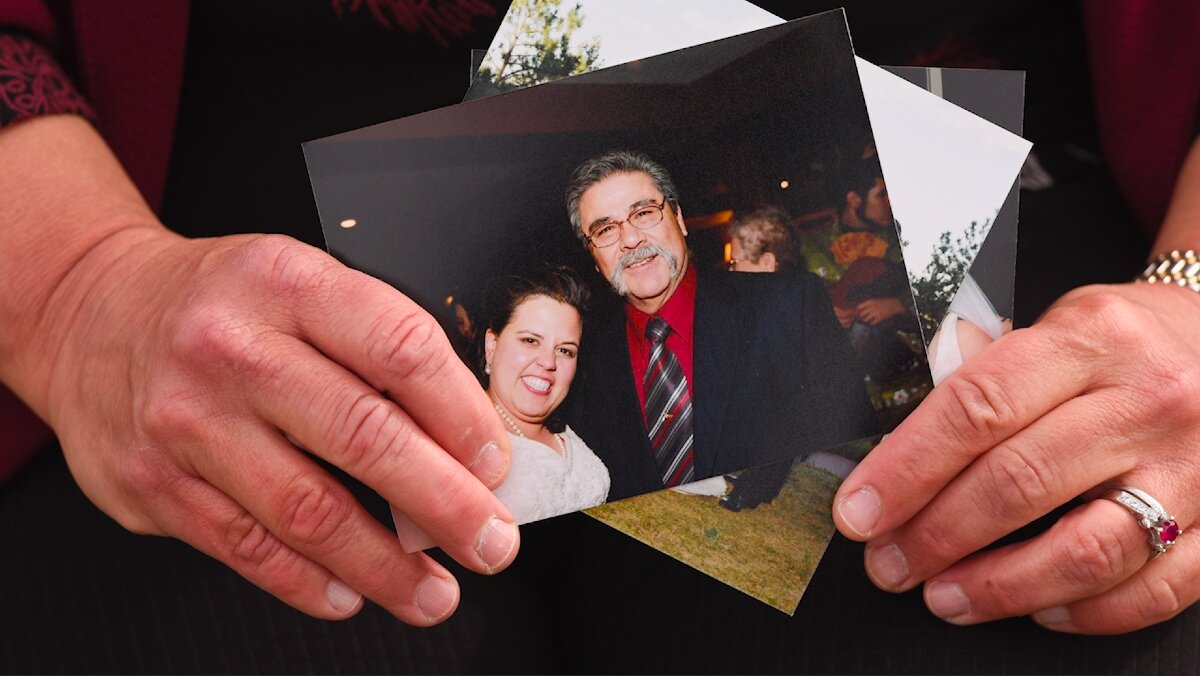The fight against COVID-19 turned very personal for a top Colorado medical expert

AURORA, Colo. — The COVID-19 pandemic is the kind of health catastrophe that Dr. Michelle Barron has spent decades preparing for.It's "not something you hope for, but you always think about and plan for, and obviously your training goes into motion," she said.Barron is the senior medical director of infection prevention and control for UCHealth, which praises her as "the top infectious disease expert in Colorado." She treated people affected by AIDS in the 1990s while still in medical school in Texas, and was on the front lines against the H1N1 flu pandemic in 2009 and Ebola in 2015.And when COVID struck in early 2020, she was ready to help lead the charge again. "Barron’s dad was a deputy sheriff in Texas," a June 2020 UCHealth profile of the doctor says, "and Barron has been like the sheriff of UCHealth, squaring off against a fierce virus and reassuring patients and providers that she would protect them."Based at the Anschutz Medical Campus in Aurora, Barron is a member of the Governor's Expert Emergency Epidemic Response Committee and helped shape UCHealth's response to the pandemic.
But if Barron was ready to do battle with the deadly disease, she was not ready for the toll it would take on her family.
"2020 was probably one of the hardest years of my life," she told Rocky Mountain PBS.
Seven members of Barron's extended family have contracted COVID-19. Three were hospitalized. And two died.
"I have all the knowledge. I have all the expertise. I've been telling everybody how to stay safe," she said. "And I couldn't have that impact on my family."
Barron's uncle and aunt — Ricardo and Marisela Téllez — lived next door to her in the Texas border town of Loredo when she was growing up. Last summer, they both were struck hard by COVID and went into the hospital within days of each other.
"I was actually seeing patients in the hospital at the same time with COVID, and knowing that my aunt and uncle were going through the same thing was really, really tough," Barron said.
Barron's Uncle Ricardo — a Navy veteran and longtime Loredo police officer — and her Aunt Marisela — who worked in business and later as special-education teaching assistant — were a fun-loving couple who loved dancing and parties. Friends called them Rick and Mari.

As the only medical professional in her family, Barron stayed in touch by phone with her aunt and uncle, helping them "understand what was going on, what things we could expect and not expect."
Even though Ricardo and Marisela were getting excellent care in Texas, "it was hard," Barron said, "because I also was still trying to make sure that we were doing the right things [at UCHealth] for the hospital and the community. "You just have to sort of turn it on and turn it off, depending on what I was doing," she said. "Like I'd go to my office, talk to the doctors [in Texas], ... cry for five minutes, and then" — snapping her fingers — "turn it back on. I had patients to take care of. I had things I had to do."
Ultimately, her uncle and aunt lost their battle with COVID. Ricardo died last August at age 73, and Marisela succumbed a month later at age 65. They left behind five children, 12 grandchildren and 12 great-grandchildren.To date, nearly 580,000 other people in the United States have fallen to the pandemic. "There's a lot of people out there without their aunts and uncles, without their parents, their siblings, and it's horrifying for me to think about," Barron said. More than a year into the war against COVID, the fight is not over, Barron cautions."I want people to know that this is still important" — getting vaccinated, wearing masks, being careful, she said. "We are not done with this pandemic. People are still going to die."She added: "At the end of the day, I can guarantee you, if we had access to the vaccines at that time, my aunt and uncle would be here
